Blockchain Compliance on Polkadot: Webinar Recap
On Tuesday, October 29, Merkle Science hosted a three-hour webinar, Polkadot and Compliance: Navigating Regulatory Challenges for Protocols and Their Ecosystems.

Identify suspicious transactions, prevent fraud & comply with AML, KYC & CFT regulations
Forensically analyze cryptocurrency transactions, track stolen funds, and investigate crime

Perform due diligence, flag risky transactions & generate risk reports

Training and certification for compliance & investigation teams
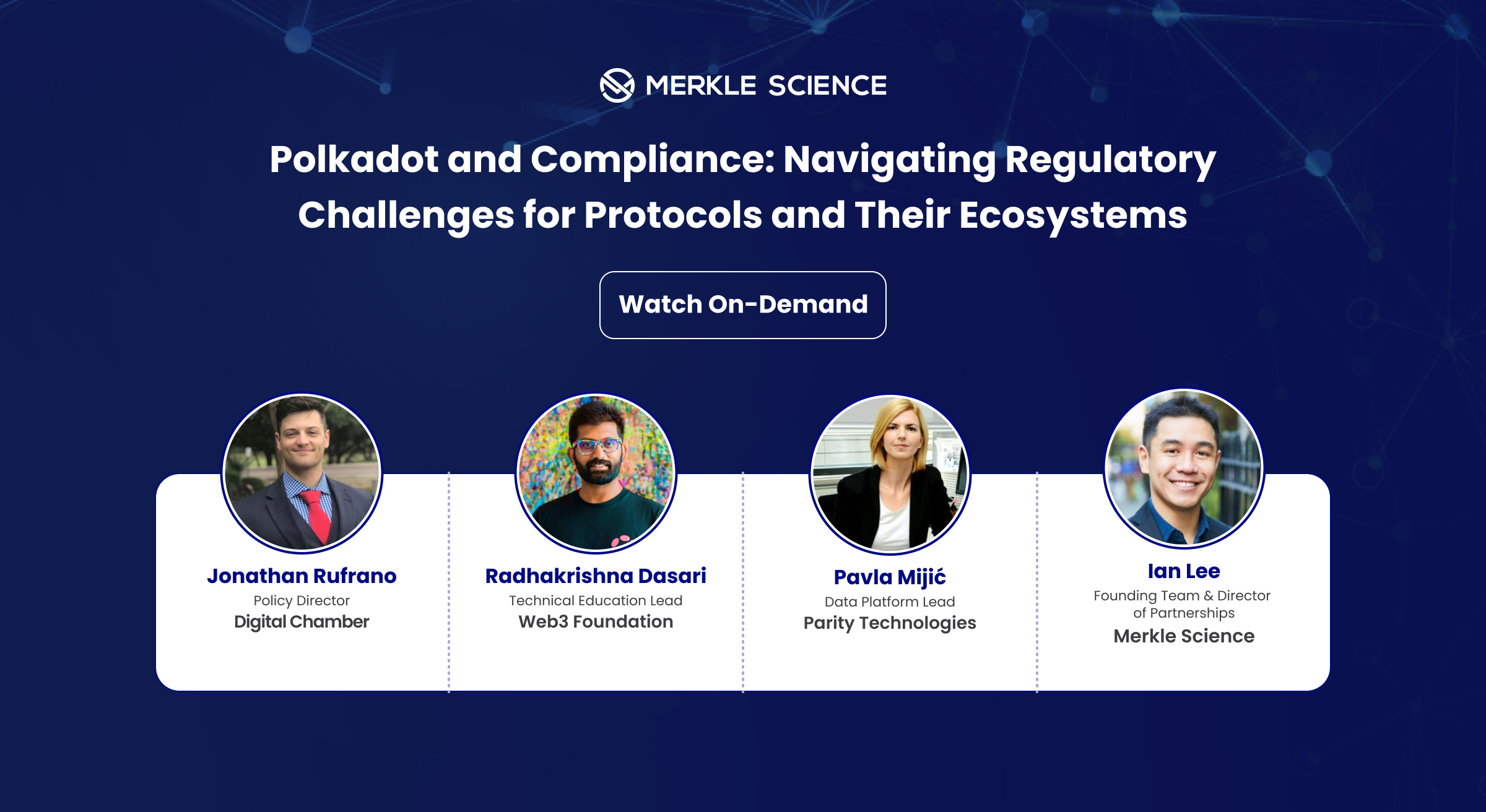
On Tuesday, October 29, Merkle Science hosted a three-hour webinar, Polkadot and Compliance: Navigating Regulatory Challenges for Protocols and Their Ecosystems.

Hot wallets are cryptocurrency wallets designed to maintain continuous internet connectivity and real-time interaction with the cryptocurrency network. These wallets enable users to execute swift transactions, check token balances instantly, and manage assets conveniently. However, their constant internet connectivity makes them more susceptible to cybersecurity threats compared to cold wallets, which remain offline.

This article provides an analysis of the latest regulations introduced by the Virtual Assets Regulatory Authority (VARA) in Dubai concerning the marketing of virtual assets and related activities. The newly implemented Marketing Regulations, supported by the "Guidance on Regulations on the Marketing of Virtual Assets and Related Activities 2024," replace the previous framework, bringing updated standards to ensure compliance and investor protection. The article outlines key aspects of the new regulations, including definitions of marketing, general prohibitions, the scope of applicability, and specific rules regarding anonymity-enhanced cryptocurrencies and key opinion leaders.
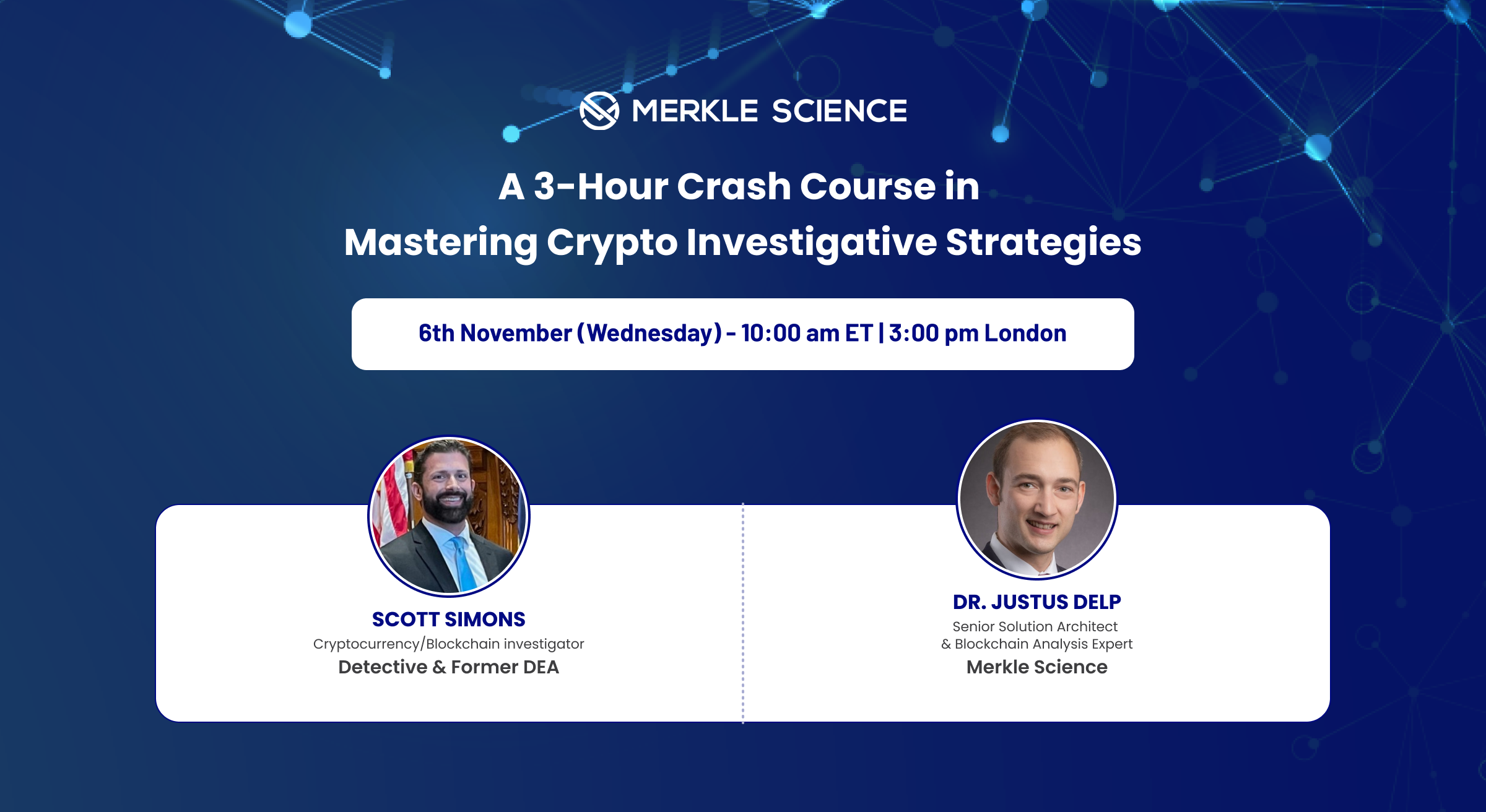
On Wednesday, November 6 at 10 am ET, Merkle Science will be hosting a webinar, A 3-Hour Crash Course in Mastering Crypto Investigative Strategies.

On Monday, October 14, blockchain analytics company Merkle Science and blockchain security firm Halborn hosted a one-hour webinar, Crypto Hacks in 2024: Have We Truly Learned From Crypto’s All-Time Biggest Hacks?
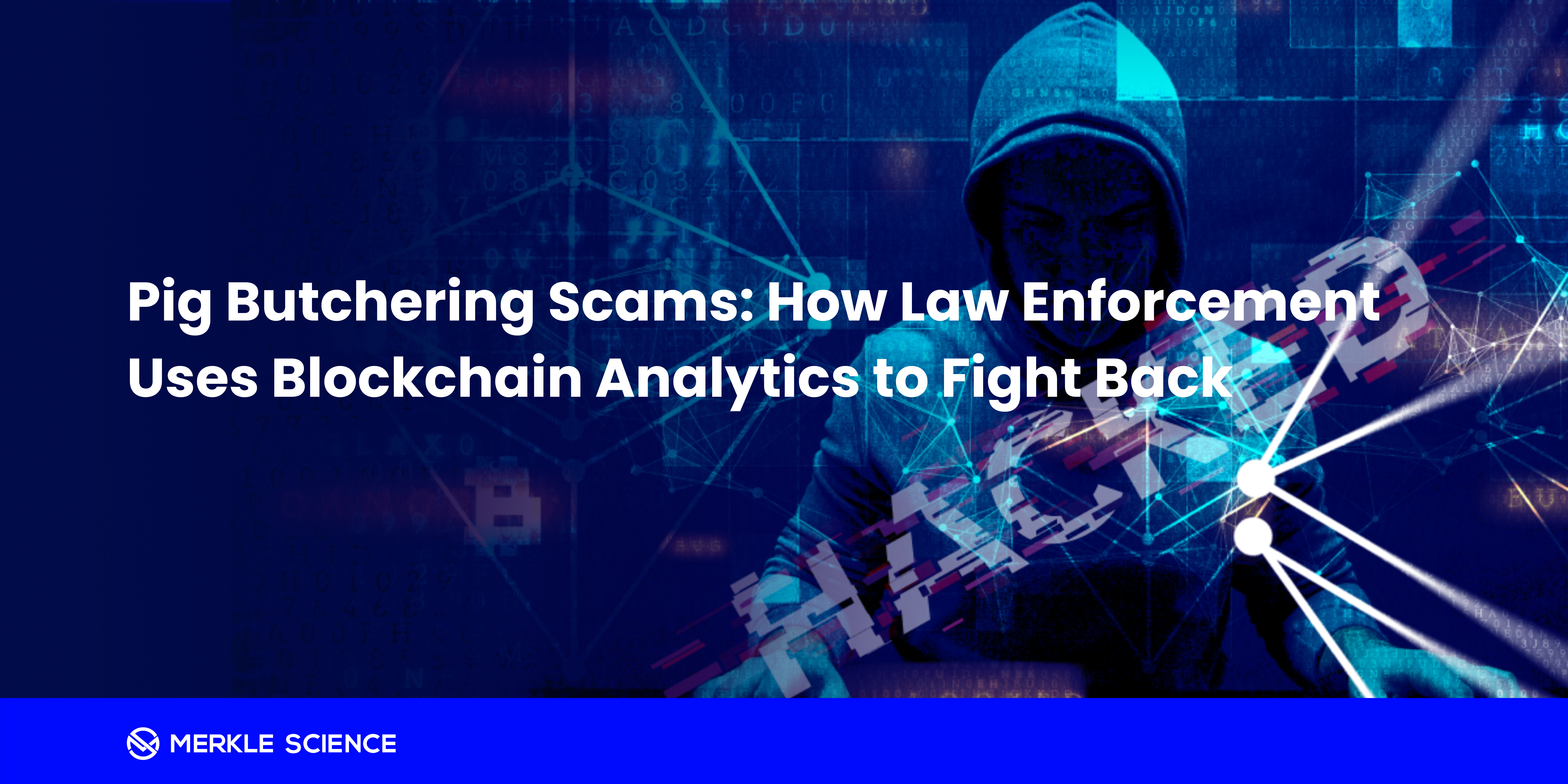
Pig butchering scams have emerged as a significant cybercrime threat, costing victims billions of dollars worldwide. The transnational criminal organizations that run these frauds seek to exploit the victims' psychology through a prolonged campaign of getting to know the victim. The victim will often feel an emotional connection to the illicit actors, which can be challenging to break.

With the rise of crypto crime, investigators must increasingly focus on obtaining blockchain intelligence that platforms like Merkle Science’s Tracker provide. Open source explorers hold only quantitative data that has limited usefulness.
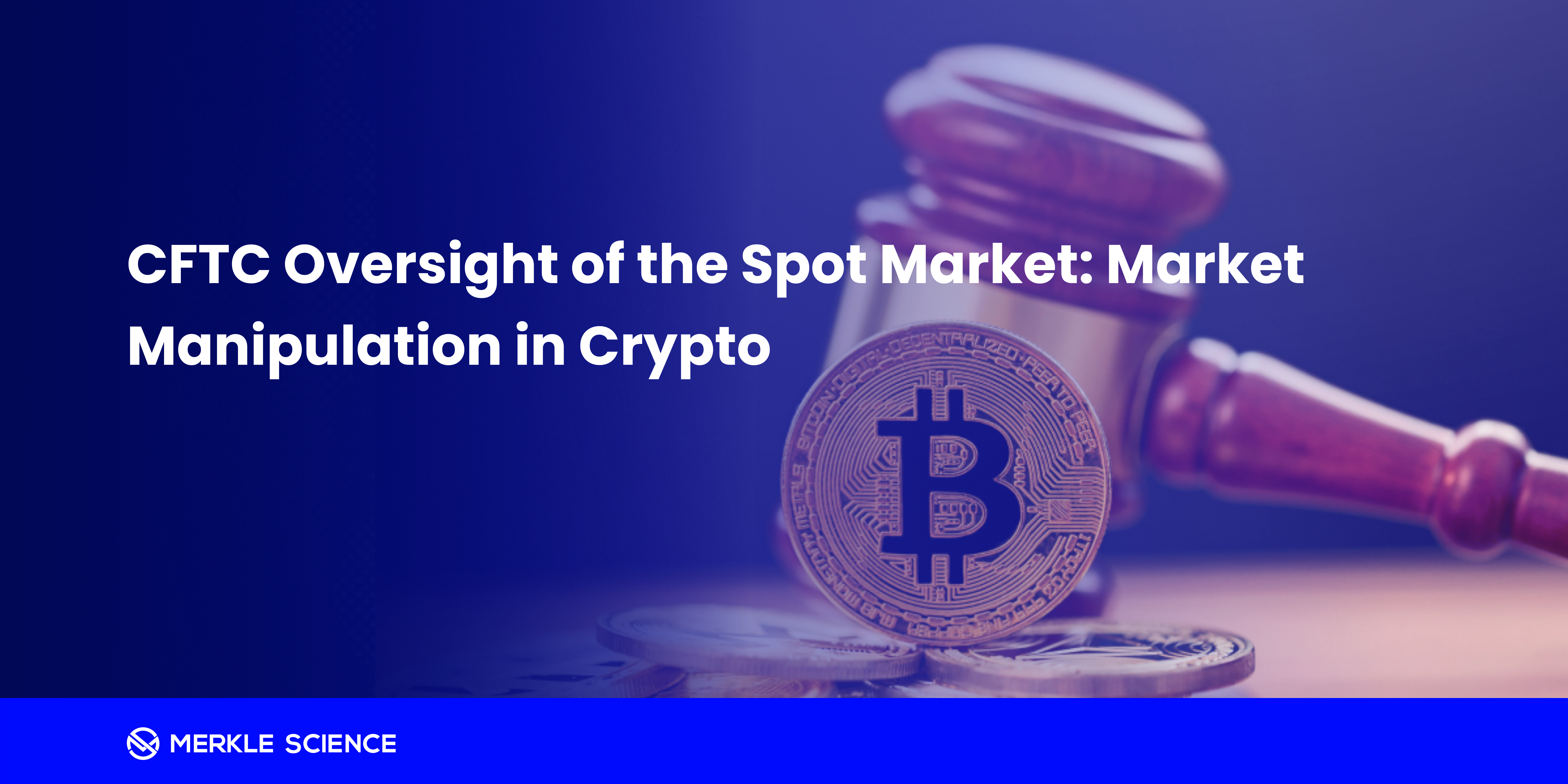
The spot market is where cryptocurrencies like Bitcoin and Ethereum are traded for immediate delivery, with prices determined by supply and demand in real-time. Unlike the futures market, where assets are traded on contracts settled at a future date, the spot market involves direct transactions of the asset itself.
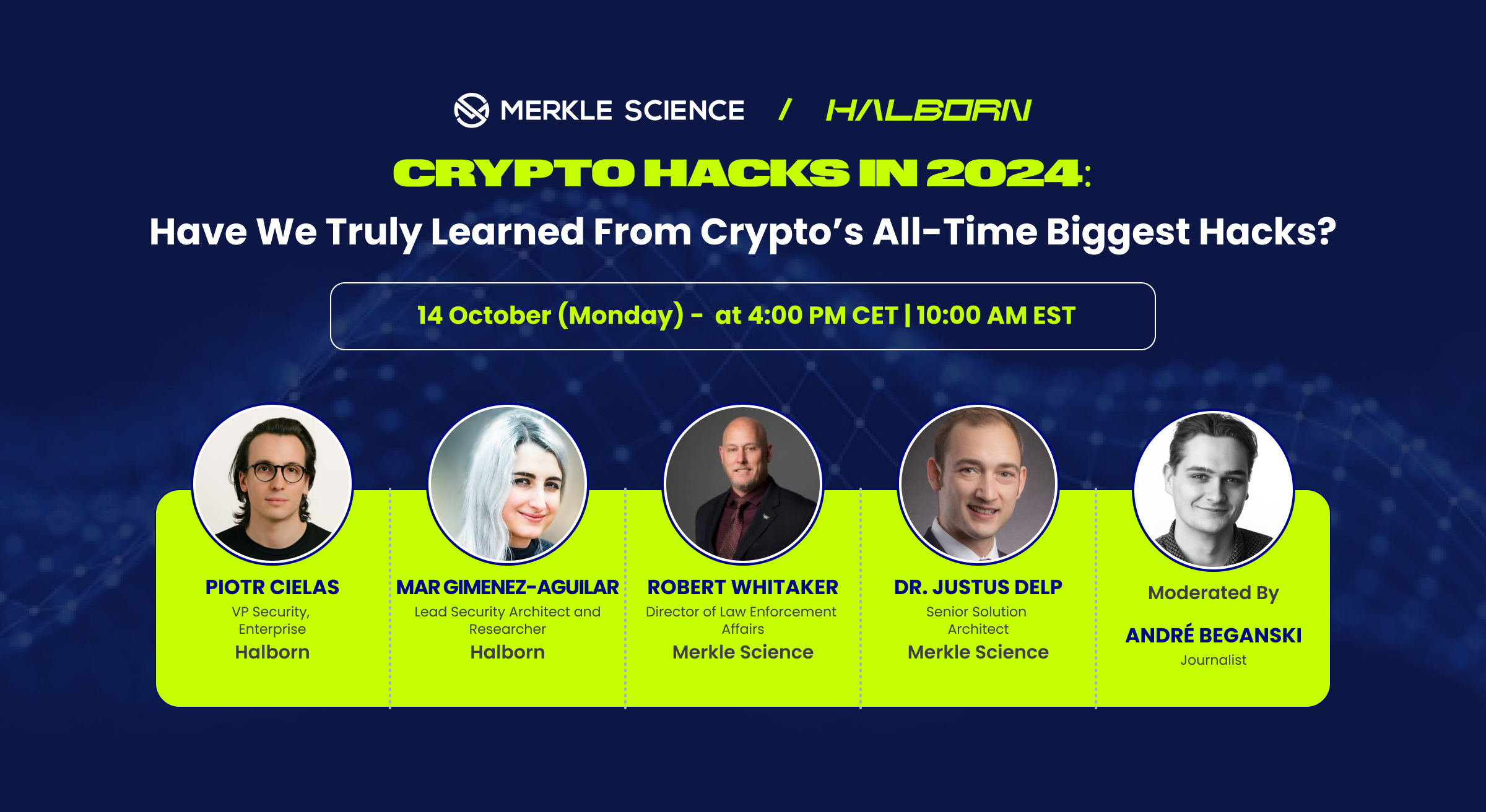
On Monday, October 14 at 10 am ET, blockchain analytics company Merkle Science and blockchain security firm Halborn will be hosting a one-hour webinar, Crypto Hacks in 2024: Have We Truly Learned From Crypto’s All-Time Biggest Hacks?
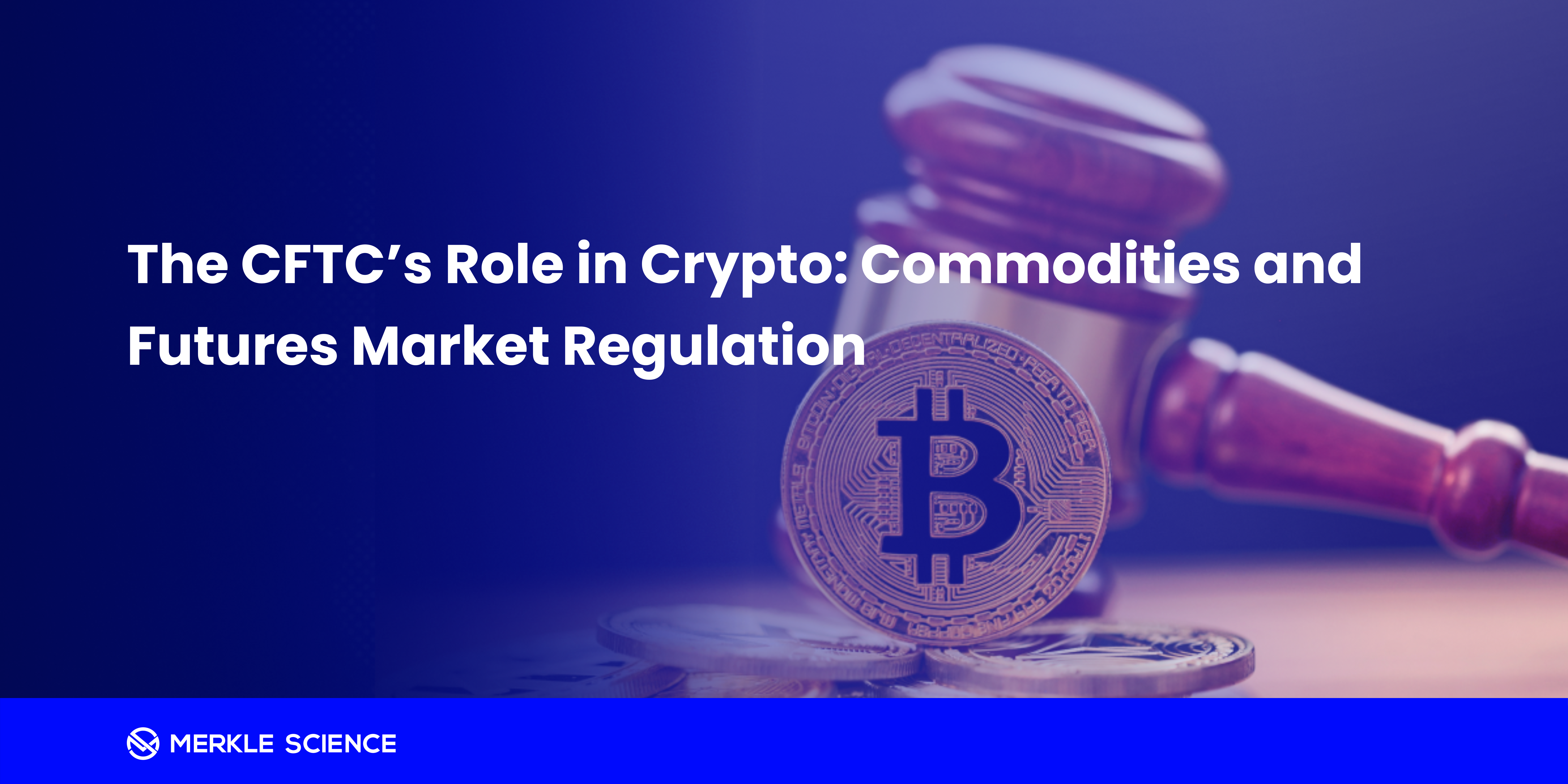
As the crypto asset market has matured, regulatory authorities like the Commodity Futures Trading Commission (CFTC) have become key players in overseeing certain aspects of this rapidly evolving industry. With digital assets like Bitcoin and Ethereum now widely traded, understanding how the CFTC regulates crypto commodities and futures contracts is critical for investors, businesses, and policymakers. The CFTC’s primary responsibility lies in ensuring that commodities markets are transparent, free from fraud, and protective of consumer interests. This article delves into the CFTC’s authority over futures markets, its historical enforcement actions, and ongoing regulatory developments in 2023 and 2024.